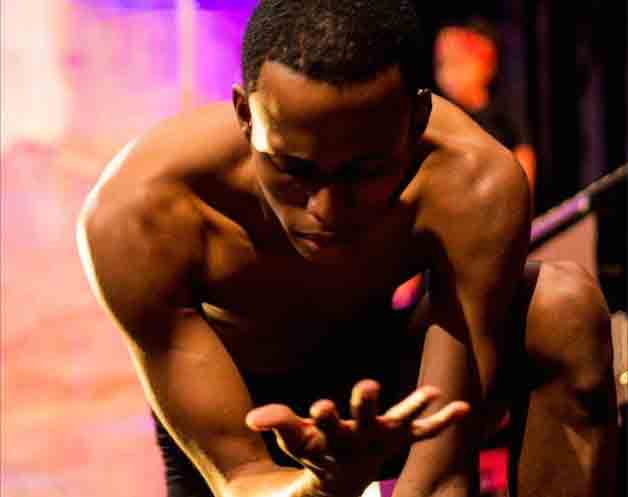Dance production sensitizing communities through creative performing art
GOSEGO MOTSUMI
As an experienced dancer and choreographer, Lesh Maseng believes in the power of dance to engage the emotions, reflect reality in dramatic form and move audiences to think and feel differently. He recently showcased his one man stage production titled G.A.Y at Maitisong which tells his story of growing up queer and his journey to finding confidence and self respect through dance.
“G.A.Y (Give All Yourself) means being exposed to the world. People will label a person ‘gay’ thinking they already know that individual in and out, but in actuality they haven’t a clue. That’s why I walk on stage naked, a symbol of being stripped of individuality, exposed by the world. Blood is projected onto my body as a symbol of society killing creativity,” Maseng explained.
The production sought to foster understanding of what it means to be LGBTI in Botswana and Africa as well as sensitizing communities through creative performance art. The show explores the hurdles Maseng had to overcome in order to become an activist and well rounded performer, which included rejection by some family members.
“Eventually there was respect from those who understood where I was coming from. I certainly experienced discrimination from the authorities but gradually found spaces and audiences, including at Maitisong, where my creative vision as a dancer can grow,” he said.
Queer is a term used to identify sexuality that is not hetero-normative and at the same time does not define one person as lesbian, gay, bisexual or asexual. It identifies a person who does not subscribe to the idea that they can be attracted only to the opposite sex. In Botswana the policy environment for the LGBTI community has improved in recent years with the registration of activist organizations, banning of employment discrimination and adoption of more progressive public health policies, but social acceptance remains a distant dream.
“Most Batswana still see homosexuality and gender non-conformity as unnatural, sinful, or dangerous, and many LGBTI Batswana continue to be disowned by their families, harassed in public spaces, and denied equal treatment by police, healthcare workers, teachers, government officials, pastors, traditional authorities, and other service providers. Indeed, with the increasing popularity of conservative religious movements, homophobia and transphobia may even be on the rise,” he opined.
Maseng further added that legal and policy reforms are important but they will not change people’s attitudes, which is why cultural activism is vital. “In order to change minds and hearts, LGBTI Batswana need to be seen as people like everyone else. Laws and policies can’t do this, but by exploring the lived experiences of LGBTI people, the arts can,” concluded Maseng.

